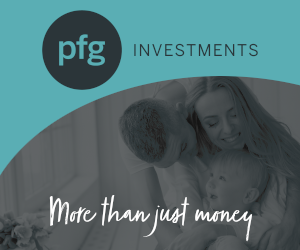Self-Employed Mortgages
PFG Mortgages specialises in self-employed mortgages
We are 100% independent and can advise on products
across the whole mortgage market
Our 5* rated team are always on hand to help
With you from application to completion and beyond
More than just Mortgages we offer advice on Insurance, Wills, & Investments
Please get in touch today for a no-obligation conversation about how we can help
find you the best mortgage for your needs.
Will a lender classify you as self-employed?
While the exact definition varies by mortgage lender, in very simple terms you’ll generally be considered ‘self-employed’ if you own at least 20-25% of a business whose proceeds make up your primary income.
In reality, though, there are several ways of working for yourself. This could include (but isn’t limited to) the following business models:
• Sole trader: This is where you own and run a business by yourself (responsibility is solely yours). Sole traders can have employees too, but the sole trader remains in charge of the business.
• Contractor: Typically, this is where you provide services or skills to another business for a set or contracted period – be it in hours or project duration. A contractor could be a sole trader or run their own limited company.
• Director/partner of a limited company: This is where responsibility for a business is shared between directors/partners/shareholders (it’s not solely one person’s responsibility).
In general terms, you’ll likely be considered self-employed if you’re responsible for the success or failure of a business – be that solely or jointly.
• Freelancers
If you’re a freelancer you’ll probably be considered self-employed, falling under the sole trader or contractor categories (performing work for set periods of time or completing individual projects).
• Agency & ‘umbrella’ workers
In most cases, agency workers – and agency workers who are paid via an ‘umbrella’ company – are unlikely to be considered self-employed. However, agency and umbrella workers can experience similar difficulties to the self-employed when trying to get a mortgage, such as providing a regular income.
If you’re an agency or umbrella worker, it’s best to speak to a mortgage broker and they can advise you accordingly.
What are Self-Employed Mortgages?
Self-employed mortgages are not a one-size-fits-all proposition. There are various options available, each with its own set of requirements and benefits. Here’s an overview of the most common types:
→ Self-certification mortgages
→ Accountants’ mortgages
→ Multiple income stream mortgages
Qualifying for a Self-Employed Mortgage
While the specific requirements for self-employed mortgages vary from lender to lender, there are some general eligibility criteria:
→ Applicants must have been self-employed for a minimum period of one year.
→ Your business must be profitable and have a proven track record of generating income.
→ Strong Credit History, use our link to check my file
→ Must be able to demonstrate sufficient funds to cover the deposit.
Maximizing Your Chances of Approval
Firstly speak to an independent mortgage adviser who specialises in self-employed mortgages like the team here at PFG Mortgages, to help aid your adviser you can also:
→ Gather all relevant financial documents, including business accounts, tax returns, and accountant’s reports.
→ Optimize your income
→ Maintain a good credit score, use our recommended check my file service and provide this to your PFG Adviser
Additional Tips for Self-Employed Mortgage Applicants
→ Consider alternative credit scoring mechanisms
→ Demonstrate business growth
→ Showcase your financial management skills
→ Be patient and persistent
Remember, there’s no one-size-fits-all approach to securing a self-employed mortgage. The key is to carefully evaluate your options, work with experienced professionals, and present your financial situation in the best possible light.

Download our Self-Employed Mortgage Guide






